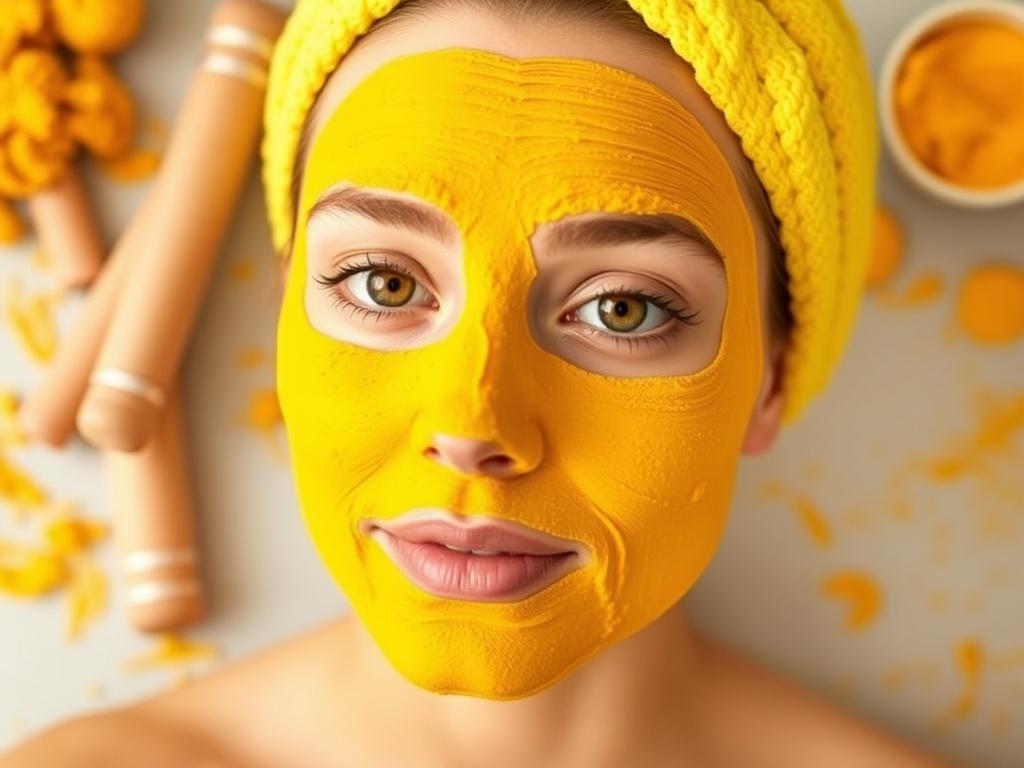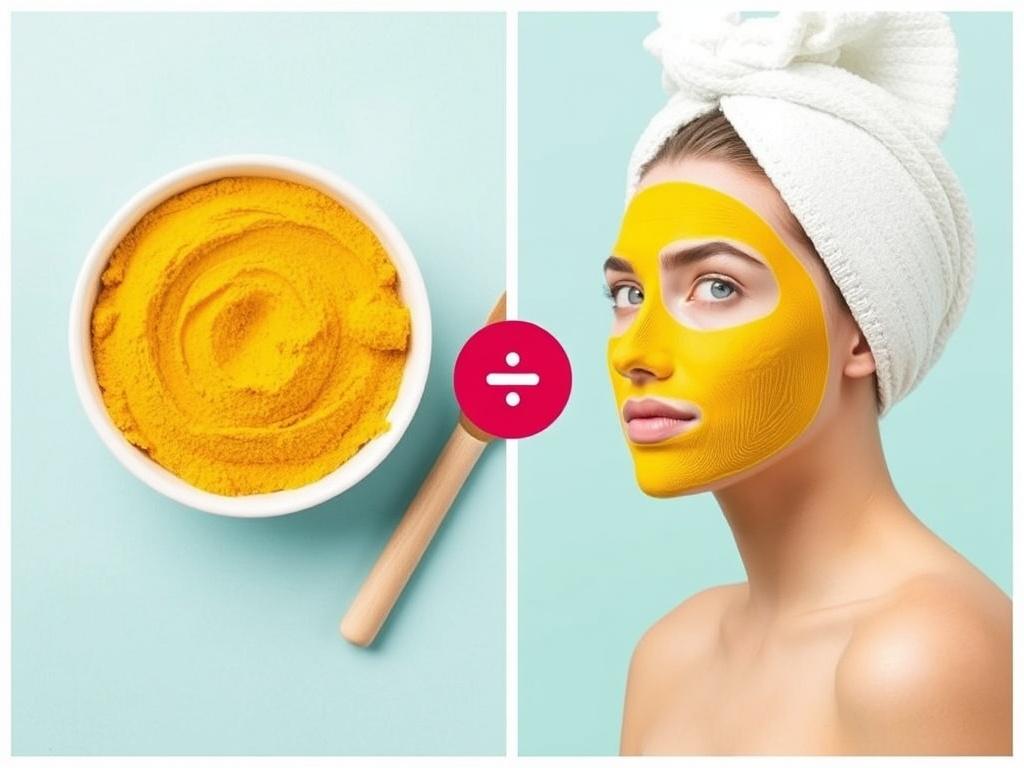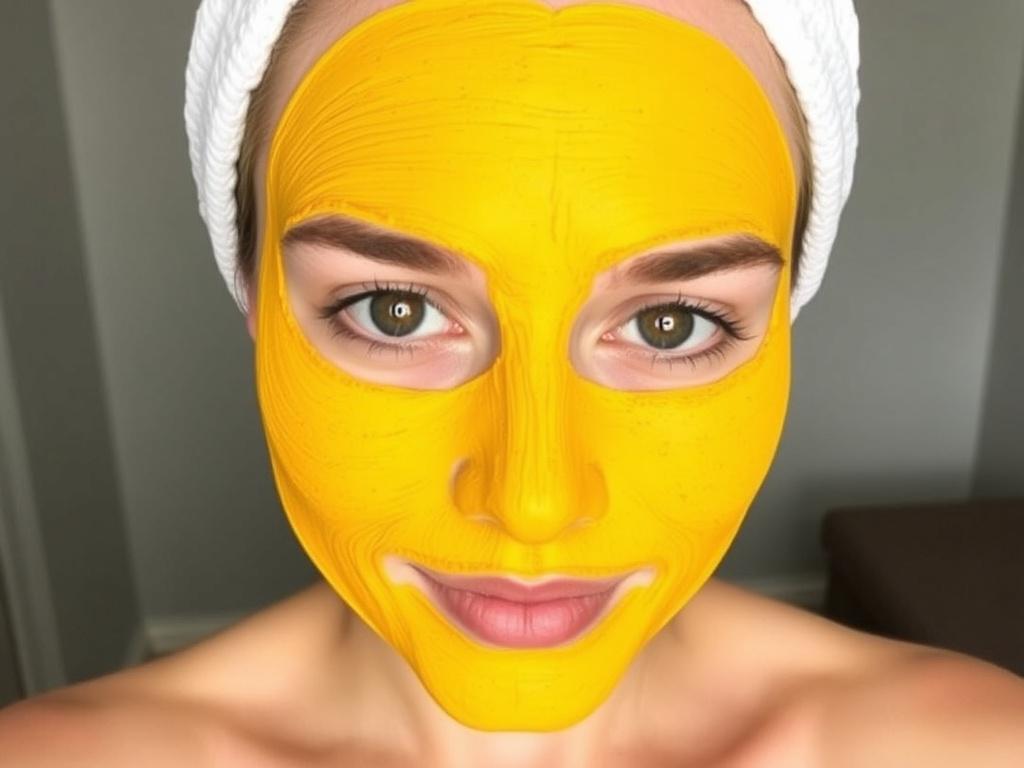Содержание статьи
- 1 What Is Turmeric and Why Is It Popular for Skin Care?
- 2 The Science Behind Turmeric Face Masks
- 3 Common Benefits of Using Turmeric Face Masks
- 4 How to Make a Turmeric Face Mask at Home
- 5 Potential Side Effects and Precautions
- 6 Popular Turmeric Face Mask Products on the Market
- 7 How Often Should You Use Turmeric Face Masks?
- 8 Myths and Facts About Turmeric Face Masks
- 9 Tips for Maximizing the Benefits of Turmeric Face Masks
- 10 Real User Experiences: What Do People Say?
- 11 Turmeric Face Masks in Popular Skincare Routines
Turmeric face masks have become one of the most talked-about beauty remedies in recent years. From Instagram influencers to dermatologists, many people swear by turmeric’s skin-enhancing properties. But with so many products and DIY recipes circulating, it’s natural to wonder: do turmeric face masks really work? This article will take you on a detailed journey exploring everything you need to know about turmeric face masks – their benefits, how to use them, the science behind turmeric’s magic, potential risks, and much more. By the end, you’ll have a clear understanding of whether turmeric face masks deserve a spot in your skincare routine.
What Is Turmeric and Why Is It Popular for Skin Care?
Turmeric is a bright yellow spice that has been a staple in Indian cooking and traditional medicine for thousands of years. More than just a flavorful addition to curries, turmeric contains an active compound called curcumin, known for its antioxidant, anti-inflammatory, and antimicrobial properties. These properties make turmeric a sought-after ingredient in the world of beauty, particularly for face masks.
When applied topically, turmeric is believed to reduce redness, combat acne, and give skin a natural glow. But what makes turmeric face masks so fascinating is their potential to address a variety of skin concerns without harsh chemicals. This versatility, combined with turmeric’s natural origins, helps explain why many people look to turmeric face masks for a natural boost to their skin’s health and appearance.
The Science Behind Turmeric Face Masks
Before diving into recipes and reviews, it’s worth taking a moment to understand what scientific research says about turmeric’s effects on skin. The secret lies in curcumin, turmeric’s primary bioactive compound.
Curcumin’s Anti-Inflammatory Power
Inflammation is a key player in many common skin problems like acne, eczema, and psoriasis. Curcumin has been shown in various studies to inhibit inflammatory pathways in the body. When applied as a face mask, turmeric’s anti-inflammatory effects may calm irritated skin, reducing redness and swelling.
Antioxidant Benefits
Skin is constantly under attack from free radicals – unstable molecules that damage skin cells and accelerate aging. Curcumin is a potent antioxidant, capable of neutralizing free radicals, protecting the skin from environmental stressors such as pollution and sun damage. This antioxidant defense could explain why turmeric face masks sometimes leave skin looking brighter and more youthful.
Antimicrobial Effects
Acne-causing bacteria can aggravate breakouts and prolong healing. Several studies have demonstrated curcumin’s ability to inhibit the growth of certain bacteria and fungi. This antimicrobial property potentially helps in reducing acne flare-ups when turmeric masks are used consistently.
Common Benefits of Using Turmeric Face Masks
Many people turn to turmeric face masks for a host of skin benefits. While individual results differ, here are some of the most commonly reported effects:
- Brightening dull skin: Turmeric is famous for its ability to impart a warm, glowing tone by evening out skin complexion and reducing dullness.
- Reducing acne and blemishes: Its antibacterial and anti-inflammatory benefits help soothe active acne and prevent new breakouts.
- Minimizing redness: For sensitive or inflamed skin, turmeric can act as a natural anti-redness agent.
- Fading dark spots and hyperpigmentation: Some users find turmeric helpful in lightening discoloration and promoting an even skin tone.
- Anti-aging effects: By fighting oxidative stress, turmeric may help reduce fine lines and improve skin texture over time.
How to Make a Turmeric Face Mask at Home

One of the great things about turmeric face masks is how easy and affordable they are to make. You probably have most of the ingredients already in your kitchen. Here’s a simple recipe to get started:
Basic Turmeric Face Mask Recipe
| Ingredient | Amount | Benefits |
|---|---|---|
| Turmeric powder | 1 teaspoon | Anti-inflammatory, brightening |
| Yogurt or Milk | 2 tablespoons | Exfoliating lactic acid, moisturizing |
| Honey | 1 teaspoon | Antibacterial, moisturizing |
Mix all the ingredients into a smooth paste. Apply evenly to a clean face, avoiding the eye area. Leave it on for 10-15 minutes, then rinse off with warm water. Follow with your usual moisturizer. You can use this mask 2-3 times a week for best results.
Variations for Different Skin Types
Turmeric face masks can be adapted based on your skin type:
- Oily and acne-prone skin: Use turmeric with lemon juice and honey for added antibacterial effects and oil control.
- Dry skin: Mix turmeric with aloe vera gel and rose water to hydrate and soothe.
- Sensitive skin: Combine turmeric with plain yogurt and a few drops of almond oil to reduce irritation.
Potential Side Effects and Precautions
While turmeric face masks sound wonderful, it’s essential to be aware of potential side effects before slathering it all over your face.
Skin Staining
Turmeric’s vibrant yellow pigment may temporarily stain your skin, especially if left on too long or if used in large quantities. Usually, this staining fades within a few hours or can be removed with gentle cleansing or an oil massage.
Allergic Reactions
Though rare, some people may develop contact dermatitis or allergies from turmeric. It’s a good idea to perform a patch test on a small skin area 24 hours before applying a turmeric face mask to your entire face.
Interaction with Other Products
Turmeric’s properties can interact with some chemical exfoliants or acne medications. Always consult your dermatologist if you are on prescribed skincare treatments before introducing turmeric face masks.
Popular Turmeric Face Mask Products on the Market
For those who prefer convenience over DIY, many brands offer ready-made turmeric face masks. Below is a comparison of some popular turmeric-infused products:
| Product | Key Ingredients | Price Range | Ideal For |
|---|---|---|---|
| Glow Up Turmeric Face Mask | Turmeric, sandalwood, manjistha | $15 – $25 | Brightening, acne-prone skin |
| Kora Organics Turmeric BHA Brightening Mask | Turmeric, willow bark, kiwi | $40 – $50 | Exfoliation, natural glow |
| Viva Naturals Turmeric Face Mask | Turmeric, bentonite clay, aloe vera | $20 – $30 | Detoxifying, sensitive skin |
How Often Should You Use Turmeric Face Masks?
Frequency depends on your skin type and mask formulation. Generally, turmeric face masks can be used 1-3 times per week. Overuse may irritate or stain your skin, so moderation is key. It’s best to start with once a week and gradually increase if your skin tolerates it well.
Myths and Facts About Turmeric Face Masks

When it comes to turmeric face masks, there is a lot of information floating around. Let’s separate fact from fiction:
- Myth: Turmeric can permanently whiten your skin.
Fact: Turmeric brightens the skin and evens tone but does not change your natural skin color permanently. - Myth: Turmeric face masks work instantly.
Fact: Like most skincare products, turmeric works gradually, with consistent use over weeks or months showing results. - Myth: You can use any turmeric powder from the kitchen.
Fact: While food-grade turmeric is often used, some prefer cosmetic-grade turmeric to avoid impurities and reduce staining.
Tips for Maximizing the Benefits of Turmeric Face Masks
To get the most out of your turmeric face masks, consider these tips:
- Always apply turmeric masks to clean skin to avoid trapping dirt and oils.
- Use gentle circular motions when rinsing to exfoliate dead skin cells.
- Combine turmeric with hydrating ingredients like honey or yogurt to prevent dryness.
- Store masks in a cool, dry place to preserve freshness if making in advance.
- Be patient and consistent—results often appear after several weeks.
Real User Experiences: What Do People Say?

Many people share positive experiences using turmeric face masks for brighter, clearer, and more even-toned skin. For example, one user noted that her acne scars began to fade after 4 weeks of weekly turmeric mask treatments. Others appreciate how their skin looks “glowy” and feels smoother.
However, some individuals reported mild irritations or temporary yellow staining. This underscores the importance of testing and adjusting usage based on personal skin reaction.
Turmeric Face Masks in Popular Skincare Routines
Incorporating turmeric face masks into your skincare routine is relatively easy. Typically, these masks fit in as a weekly treatment after cleansing and before moisturizing. They pair well with gentle cleansers and natural moisturizers, allowing turmeric’s benefits to shine without disruption.
A sample weekly skincare routine might look like this:
| Day | Morning Routine | Evening Routine |
|---|---|---|
| Monday | Cleanser, moisturizer, sunscreen | Cleanser, turmeric face mask, moisturizer |
| Tuesday – Sunday | Cleanser, moisturizer, sunscreen | Cleanser, targeted treatment (if any), moisturizer |
Conclusion
Turmeric face masks do indeed hold promise for improving skin health thanks to their anti-inflammatory, antioxidant, and antimicrobial properties. The science behind turmeric’s key compound curcumin supports many of the skincare benefits people experience, such as brightening, acne reduction, and soothing redness. Whether you choose to make your own turmeric face mask or purchase a commercial product, incorporating turmeric into your routine can provide a natural boost to your skin’s glow and resilience. However, it’s important to approach its use thoughtfully, performing patch tests to avoid allergic reactions and being mindful of staining potential. Ultimately, turmeric face masks can be a valuable and enjoyable addition to a balanced skincare regimen, delivering gradual and effective enhancements without harsh chemicals. So, if you’re curious or looking for a simple natural remedy, turmeric face masks are definitely worth trying.

